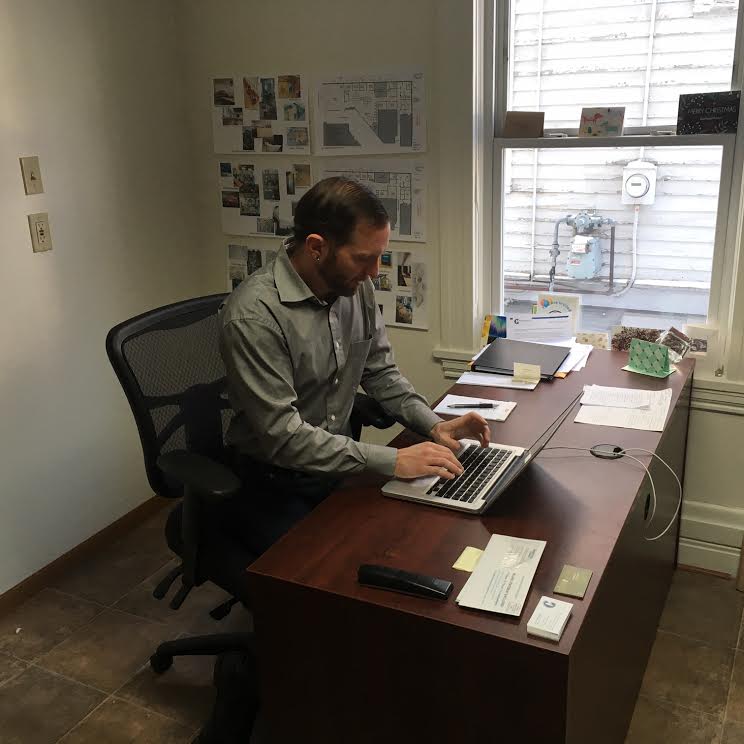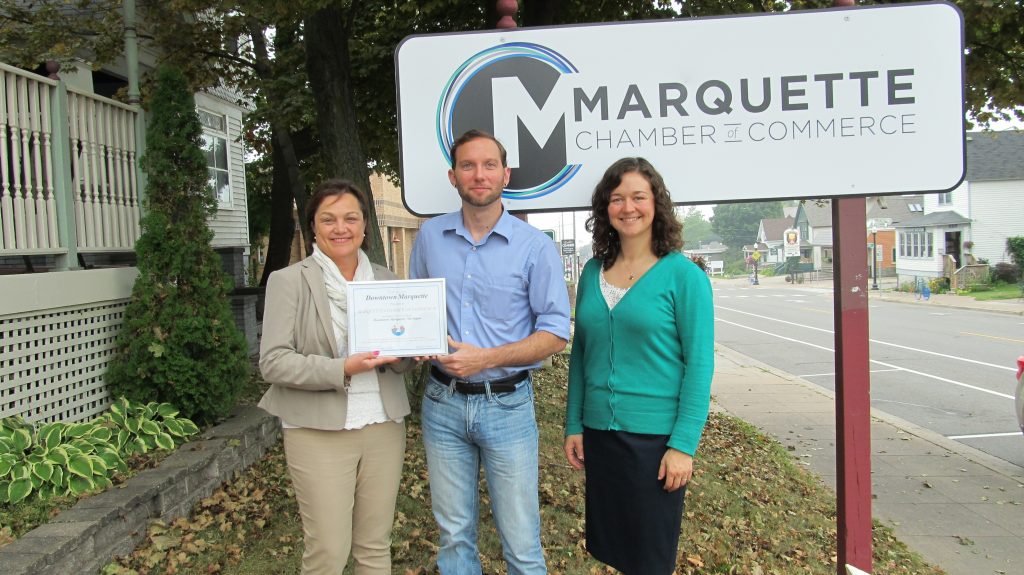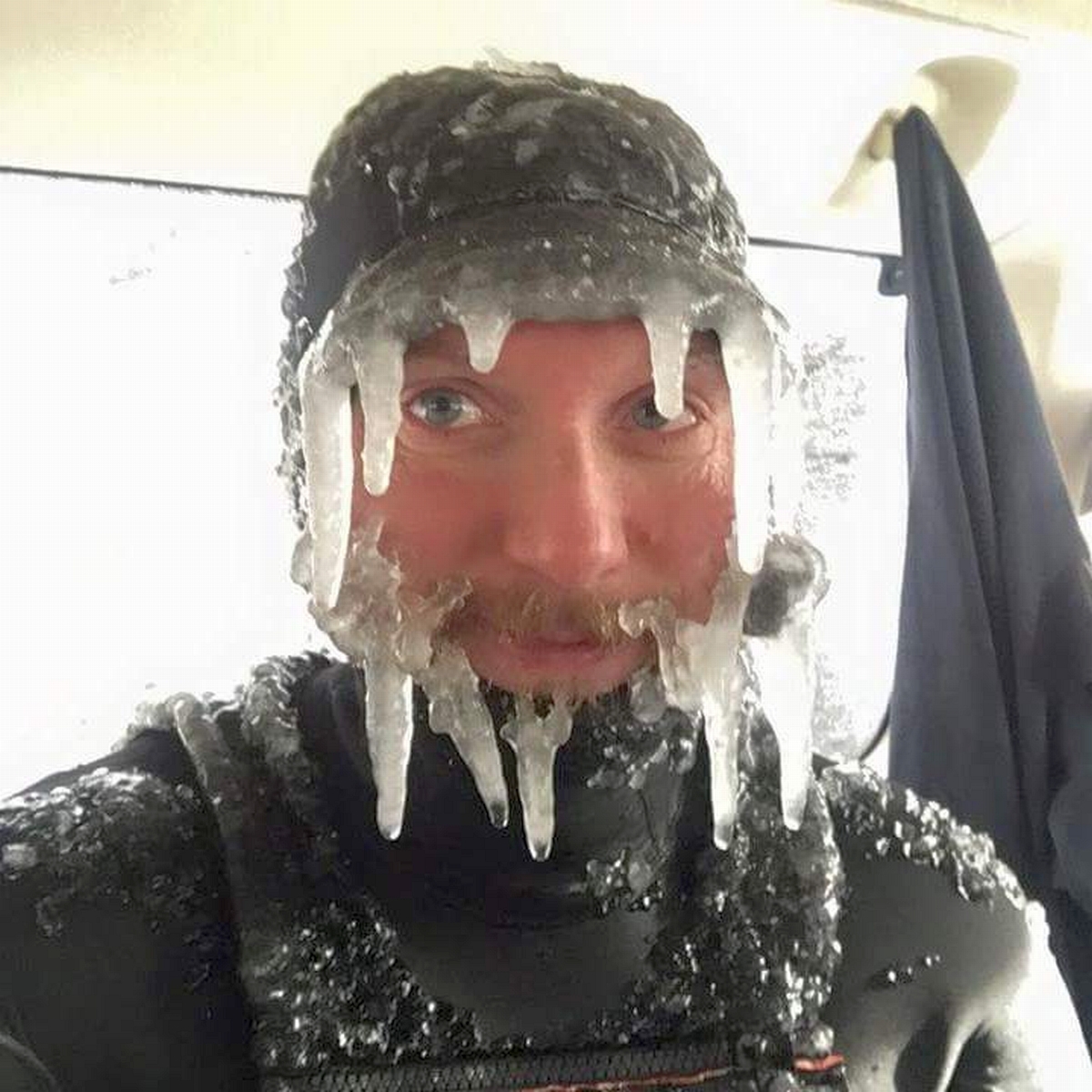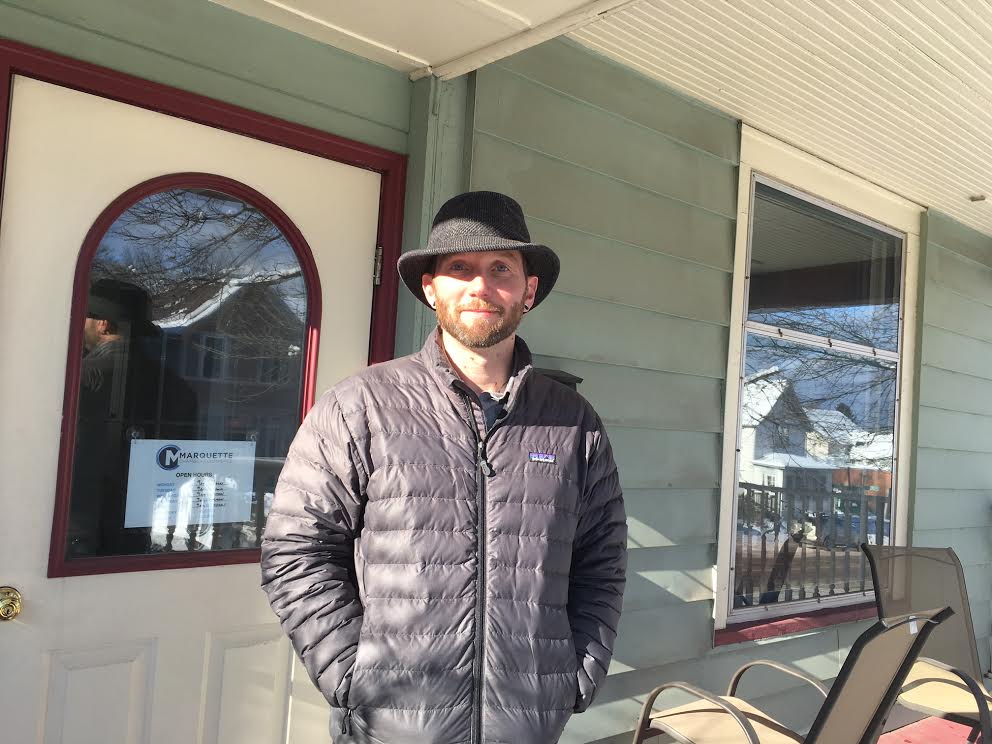Brian recently sat down with Jason Schneider, the executive director and founder of the Marquette Chamber of Commerce. He’s a little different from most of us. A Californian who relocated to the Upper Peninsula. A left-winger who’s big on business. A wintertime surfer in Lake Superior. He’s squeezed a wealth of experience into his 38 years.
BC: It sounds like you moved around quite a bit as a child. Why was that?
JS: Basically I grew up with parents who were never married. My dad was a big wheeler-dealer working in Hollywood but my mom didn’t want any part of that once I was born, so I mostly grew up with a single mom who put herself through school and work. She was an English as a Second Language teacher so she went where that took her.
BC: And where was this?
JS: Mostly in California. But there was a huge difference for me visiting my dad in Los Angeles and then being in the Clovis-Fresno area among Hmong and Hispanic communities with my mom teaching adults how to speak English. A lot of these were immigrants who had just recently moved there, trying to get on their feet.
BC: And what were your impressions of all that as a child?
JS: You know, I don’t really remember my impressions while I was there. It was moving here that made me look back and understand it better because to me at that time, that was just normal. Less than half of the students at my school had white skin and most people speaking another language just seemed normal to me. Even in high school when I moved to Ojai, near Santa Barbara, it was the same thing. It was half English as a second language students. It wasn’t until I moved here (to Marquette) that I was, like, “Oh wait a minute, this is different…People don’t have that same background.”
BC: And you also lived among Mormons.
JS: Yes, when my mom remarried and we moved to the hills outside of Clovis–I was about ten–that community was mostly Mormon and Native American. it was much more rural white and more Native American. it was amazing to go from a whole bunch of mostly poor, immigrant farm workers to middle class, upper middle class white farmers and Native Americans. I never really really saw all the racial, socio-economic divide until I went there.
BC: Would you characterize your childhood as happy?
JS: Yeah. Because I was encouraged to try everything and do everything. I had some incredible friends and family. I grew up as an only child so I was really close to my cousins and they’re still some of my best friends. I’ve always sought out meeting new people. Even as a kid, I was always meeting people that were different….and it was rich.
BC: When you say you were encouraged to do everything, what do you mean?
JS: Whether it was any sport that I wanted to try, musical instruments, swimming, going and playing in the woods. Being in the woods was really what grabbed me as a kid. When I was ten, we moved up into the hills and I had hundreds of acres and miles of national forest land that I could go exploring. It really opened the world up to me.
BC: If you could point to one time in your childhood that strikes you as a truly wonderful moment, what would it be?
JS: I have to mention two. One would be at 10-12 years old and going to explore the mountains with my friends, walking out our front door and being able to go 10-15 miles into the woods by ourselves. And the things we got into–like finding an old, abandoned town. But as a little kid, I remember going to my mom’s classrooms in the evening when she would have socials so that people who were native English speakers would come and talk to people who weren’t native English speakers. And I remember the food and the conversations. I loved that.
BC: What about the most traumatic moment of your childhood?
JS: I don’t know how you define the most traumatic moment when you have a father who has a lot of serious chemical issues and all the associated things that come with that. It’s more all of the little letdowns and disappointments and struggles you have in dealing with a parent who’s an addict. I don’t think there was one traumatic thing.
BC: Did you ever reconcile with your father?
JS: I was angry about it for many, many years. But somewhere around my early thirties, I came to terms with it in a way that allowed me to love him as a human being but still not accept the behavior.
BC: He was not the best of fathers, I assume.
JS: He was both the best and pretty lousy at the same time. He passed away three years ago, by the way. He did some really incredible things and I learned some amazing lessons from him. I learned that you can really set your own terms and you can talk to anybody about anything, and anything is possible. He really believed that anything was possible. I’ve picked up on that in every way. But the choices he would make because of the addictions also gave me a lot of things that I learned in the negative. Such as, “I don’t want to go down this path or this path or this path.”
BC: How did you come to NMU after spending all this time in California?
JS: I wanted to get as far away from California as I could. I wanted to go to a place that my family had no connections to. I wanted to be able to strike off and become my own person, not rely on any of the networks of my friends or family, and start totally fresh. I wanted a small town with a lot of recreational opportunities, an open admissions policy with a wide selection of majors because I had no idea of what I wanted to do. And I looked at a bunch of universities around the country, and Northern was it. By the time I graduated high school, I wanted to be around blue collar people who knew what it was like to work because that’s what I had had when I was growing up with the Hmongs and Hispanics and farmers. And I came out here and realized this was a blue collar area and lots of recreation and it seemed to fit.
BC: And so at 18 when you arrived here, you had no idea what you wanted to do when you grew up?
JS: (Laughs) I still don’t know what I want to do when I grow up.

BC: Well, did you want to start a business? Write a book? Do photography?
JS: No, not at all. Somewhere around that time, my own mortality came into my head. Recognizing what it truly means to have limited time on this earth made me want to experience as many different things as possible, learn as much as possible, and affect as much positive change as possible.
BC: Why the sense of mortality at such a young age?
JS: I have no idea. I could probably either put it to my father’s bad life choices or to my own climbing. When you climb a lot, not recreationally like in the gym, but when you climb outdoors, particularly in the Sierra Nevadas, you have this constant relationship with fear and control, and that takes your brain in all sorts of places that are pretty deep.
BC: You did some serious climbing?
JS: Yeah, I’ve been an avid climber for 25 years. I’ve been on El Cap, I’ve been on Half Dome.
BC: Let’s get back to NMU. Were you a good student in college?
JS: No. It’s interesting because high school and college both started roughly the same way. I started lousy but by the time I ended the four years for high school and five at NMU, I never got below a 3.5 in my subjects, because at the beginning I was directionless but by the end I was so excited about what I was learning.
BC: So you graduate college. What happens then?
JS: Well, I had the chance to spend time with an incredible mentor who taught me you can spend your entire life and expand your capacity to change the world or you can pick up something in front of you and change the community that you’re in. And I thought I could do it with business so opened Emma Joe’s Coffee House thinking I could create community space for people to come together and have conversations and change Marquette. I figured Marquette was a place that I could affect positively.
BC: You ran Emma Joe’s for a few years.
JS: I did that for four years. I made no money. In fact, I lost money on it. (He laughs) I looked it as grad school and I came out of it with an incredible education. I was 21 years old when I opened the coffee shop. I had no idea what I was doing. It was a huge crash course in business. By that time I had bought a few properties–with money I had gotten from my dad– and was managing the properties and working as a photographer. So I built it up. The properties went well. The coffee shop did not go well. By the time I was 26-27, the coffee shop was closed, I was spinning my wheels, I ran for City Commission, applied for grad schools and jobs everywhere. And the most interesting offer that came back was being a business adviser in the South Pacific in the kingdom of Tonga. So at 29, I joined the Peace Corps and spent two and a half years in the South Pacific.
BC: What was your biggest takeaway from that experience?
JS: Learning to listen. Everybody has egos and everybody has a vested interest in what they think is right. I spent two and a half years in another culture trying to assist people in working together. My role there was to create an indigenous tourism operators’ guild amongst the tourism businesses. And despite their dislike for each other and their lack of wanting to work together, it was my role to find ways that they could work together. It was an incredible experience.
BC: And then you came back to the U.P.?
JS: I actually came back here accidentally. I was looking at grad school in Australia but my dad’s condition was getting worse so I came back to deal with a family situation. I came back and then I ran for City Commission and won. And that committed me to Marquette for the next few years.
BC: How’d that work out for you, the City Commission? Was it gratifying? Frustrating?
JS: It was one of the better things I’ve ever done in my life. I find a lot of value in our democratic system. Trying to hash out some of the difficult decisions for a large group of people is an amazing process. I enjoyed sitting on the Commission with six people with wildly different ideas of how to best spend taxpayers’ money.
BC: And after that job?
JS: Well, of course, that’s a volunteer gig, s0 when I got back from the Peace Corps, I got a job with the U.S. Census. Then I was hired to start My Upper Hand–I was their first general manager, then I was John Kivela’s first campaign manager, I worked for five months as a roofer on the Dome, then I was hired by Accelerate, held that position for two years, and then took eight months off to remodel a five unit apartment building…then I was hired here at the Chamber.

BC: Any partners in all this? Anyone close to you?
JS: Though my twenties, I was a serial monogamous person. I had a four year relationship followed by a five year relationship.
BC: Sounds stable.
JS: Yeah, very stable these days. But I’ve been single now for years.
BC: Comfortable with that? With being single?
JS: Being single beats being partnered with somebody that’s only a mildly good fit. If I can find somebody who’s a great fit, that sounds fantastic.
BC: Do you think marriage is a natural state for man?
JS: No. That’s a difficult question to answer. I think partnership and taking care of each other is a natural state but personally I think marriage is an economic relationship between families. That’s how it started.
BC: When are you happiest these days?
JS: There’s a few things. Surfing and climbing hit a “flow” state. It’s where doing and thinking are exactly the same action. I’m really happy when I’m in that moment. I’m also really happy when I see people working together on something they said would never happen–like that the Chamber actually exists. Recently I’ve also started taking some dance lessons and I find when doing it right, there’s a similar “flow” state to dancing as surfing and climbing, which is nice.

BC: You’re an avid surfer.
JS: I learned here. Even though I’m from California, I learned in Lake Superior five years ago. As long as there’s waves, I’m out there. I was just out there last week (early January) in ten degrees with minus thirty degrees wind chill. It’s awesome. There’s something about living on a lake for so many years…That’s nice. But being in the lake, having that direct relationship with it, is just another level.
BC: How about politics? Where do you stand there?
JS: Most people think I’m an extreme leftist until I hang out with most of my lefty friends and then they get really angry at me for spouting things about free market and getting government out of the market. I tend to call myself an anarchist. It’s the left’s version of libertarianism. I believe in small government and getting government out of the way of everybody’s lives and everybody’s businesses as much as possible. But on social issues, I lean really far left.
BC: Any religious beliefs?
JS: I’d say I believe very deeply in God in a nondenominational way.
BC: God as a metaphysical being up there watching over all of us?
JS: Yeah, I think that’s a safe way to put it. In every way, I believe there is a God in touch with everything that’s happening with all of us.
BC: Finally, your epitaph at the end of your life. What would you like that to say?
JS: I don’t want there to be one.
BC: (Laughs) But if you had friends gathering after you died, what would you like them to say about you?
JS: Probably something like, “Holy shit, we’re not going to see something like that again.”
BC: Thank you, Jason.


